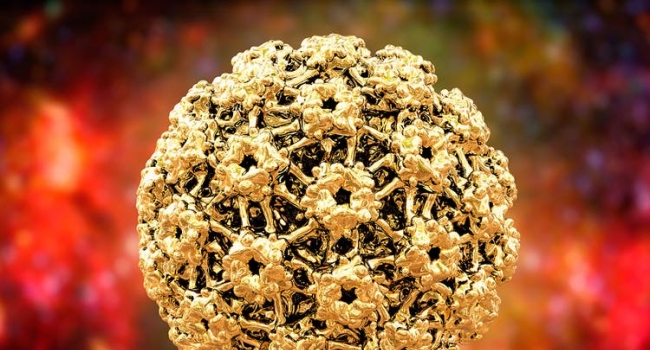- Latest news▼
-
10:23, April 19 JAMA Oncology: Urine test can help rule out high-grade prostate cancer with almost 100% accuracy, study shows

-
18:00, April 18 Daily Mail: Elderly woman in China gets infected with brain-eating amoeba

-
14:19, April 18 Obesity: exercising before breakfast helps you lose weight faster

-
10:42, April 18 The Conversation: childhood trauma can cause pathological hoarding

-
08:37, April 18 Daily Mail: Satiating food reduces cravings for sweets, nutritionist says

-
18:22, April 17 First Armenian-German Conference entitled “Heart Failure Spring School”

-
08:38, April 17 Why do kids usually recover from COVID-19 more easily than adults?

-
14:37, April 16 Daily Mail: intermittent fasting is not suitable for children and women before their periods

-
16:41, April 15 Cell: in carriers of defective BRCA2 gene, sugar consumption increases cancer risk

-
15:04, April 15 305 cases of measles recorded in Armenia so far in 2024

-
14:38, April 15 Food and Environmental Virology: tea contributes to effective coronavirus control

-
12:41, April 15 Daily Mail: vitamin A, B3 and E supplements can be dangerous

-
10:56, April 15 Diabetes Care: evening physical activity is good for the heart

-
08:27, April 15 Women are more susceptible to blood loss and death during bypass surgery than men, researchers say

-
18:42, April 13 WHO: Nigeria pioneers revolutionary meningitis vaccine

All materials
Study finds that male virgins can still acquire HPV

Men who have never engaged in sexual intercourse are still at risk for acquiring HPV, according to a study published recently in the Journal of Infectious Diseases by researchers at The University of Texas Health Science Center at Houston (UTHealth) School of Public Health.
The study included 87 male virgins between the ages of 18 and 70 from Brazil, Mexico and the U.S. The participants were followed every six months for up to 10 visits between 2005 and 2009. Male virgins who did not have sex during the research period acquired HPV despite never having engaged in penetrative sexual intercourse, although they acquired the virus at about half the rate as those who began having sex during the study period.
"Previous studies have found HPV among female virgins, but this is the first to find it among male virgins. Finding HPV in this population was not entirely surprising, but it reinforces the point that HPV vaccination should not be thought of only in the context of sexual behavior," said Alan Nyitray, Ph.D., corresponding author and assistant professor in the Department of Epidemiology, Human Genetics & Environmental Sciences at UTHealth School of Public Health.
Researchers believe that HPV was transmitted to male virgins enrolled in the study through non-penetrative sexual behavior such as hand-to-genital contact or genital-to-genital contact.
Another notable finding of the study was that 28.7 percent of virgins who began having sex during the study period acquired HPV within one year and 45.5 percent acquired it within two years, reflecting the highly infectious nature of the virus.
"These findings highlight the rapid acquisition of HPV after sexual debut among men and thus emphasize the importance of HPV vaccination before sexual debut," said Zhiyue Liu, Ph.D., first author who conducted the study as a research assistant at UTHealth School of Public Health.
HPV can cause cervical cancer, oropharyngeal cancer and cancers of the vulva, vagina, penis or anus, according to the Centers for Disease Control and Prevention (CDC). The CDC recommends girls and boys ages 11 or 12 should get two shots of the HPV vaccine six to twelve months apart. Teen boys and girls who did not start or finish the HPV vaccine series when they were younger should also get vaccinated. It is also recommended that men who have sex with men, including those who identify as gay or bisexual, get vaccinated by age 26. Nyitray added that the vaccine is most effective when the immune system is maturing during puberty, but it is still considered effective through age 26.
Follow NEWS.am Medicine on Facebook and Twitter
- Video
- Event calendar
- Archive
- Most read
month
week
day
- Pediatrics: Hypoglossal nerve stimulation implant helps with sleep apnea 1362
- WHO: Nigeria pioneers revolutionary meningitis vaccine 1170
- One-third of women experience menstruation-related migraines, most often during premenopause - study 1136
- Women are more susceptible to blood loss and death during bypass surgery than men, researchers say 952
- Food and Environmental Virology: tea contributes to effective coronavirus control 934
- Daily Mail: vitamin A, B3 and E supplements can be dangerous 933
- Cell: in carriers of defective BRCA2 gene, sugar consumption increases cancer risk 905
- 305 cases of measles recorded in Armenia so far in 2024 897
- Diabetes Care: evening physical activity is good for the heart 887
- Daily Mail: intermittent fasting is not suitable for children and women before their periods 710
- First Armenian-German Conference entitled “Heart Failure Spring School” 504
- Why do kids usually recover from COVID-19 more easily than adults? 375
- Obesity: exercising before breakfast helps you lose weight faster 362
- The Conversation: childhood trauma can cause pathological hoarding 354
- Daily Mail: Satiating food reduces cravings for sweets, nutritionist says 328
- Find us on Facebook
- Poll





